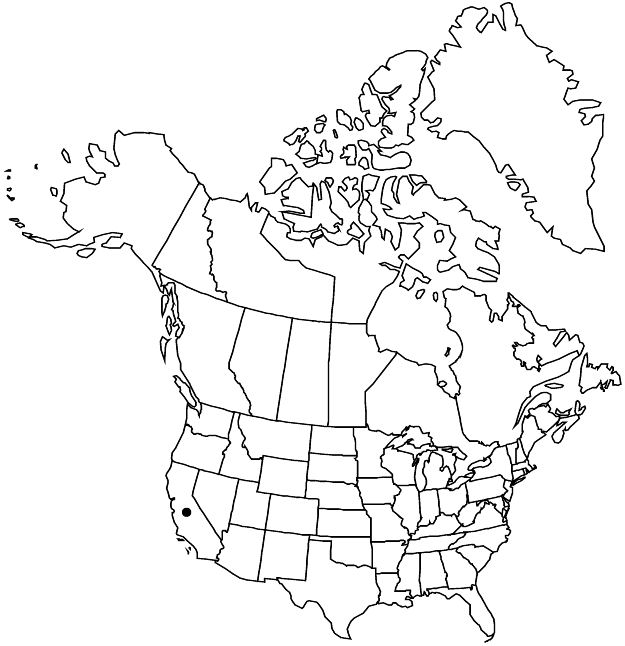Adenostoma sparsifolium
in W. H. Emory, Not. Milit. Reconn., 140. 1848.
Plants erect, 20–60 dm. Stems erect to spreading; bark distinctively cinnamon-colored, papery-layered; young stem internodes yellowish green, 1.5–7 (–15) mm (marked with slender paired decurrent grooves), finely hirtellous, sessile-glandular. Leaves on slender long-shoots, proximal 1–2 opposite, distal subalternate or alternate; stipules absent; blade yellow-green, linear to terete, (2.5–) 5–14 (–26) × 0.4–0.6 (–0.8) mm, apex recurved-apiculate, surfaces sparsely hirtellous and sessile-glandular. Inflorescences paniculate or reduced to spicate racemes (terminating all distal, long-shoots of season), 0.8–5 (–7.5) cm, hirtellous; subtending flower bracts linear-subulate; bracteoles 5 or 6, outermost subulate, inner oblong-ovate, concave. Pedicels present or absent. Flowers in sessile clusters of 2–3 (or single and pedicellate); hypanthium greenish, 0.6–2 mm, hirtellous, inner rims yellowish; sepals broadly ovate, 0.6–1 mm; petals persistent, whitish, turning rusty brown, elliptic to ovate, 1.5–2.2 mm; stamens 10 (–12), filaments 1–1.5 mm, anthers 0.4–0.6 mm; ovaries obliquely obovoid; styles erect, pinkish, 0.5–1 mm. Achenes ellipsoid, 1.1–1.6 mm, exserted from hypanthium. 2n = 18.
Phenology: Flowering Jul–Aug(–Sep).
Habitat: Dry granitic slopes, mesas, ravines, chaparral, pinyon woodlands
Elevation: 200–2000 m
Distribution

Calif., Mexico (Baja California)
Discussion
Adenostoma sparsifolium is known in southern California from San Luis Obispo and Santa Barbara to Riverside and San Diego counties, and in northern Baja California.
Selected References
None.